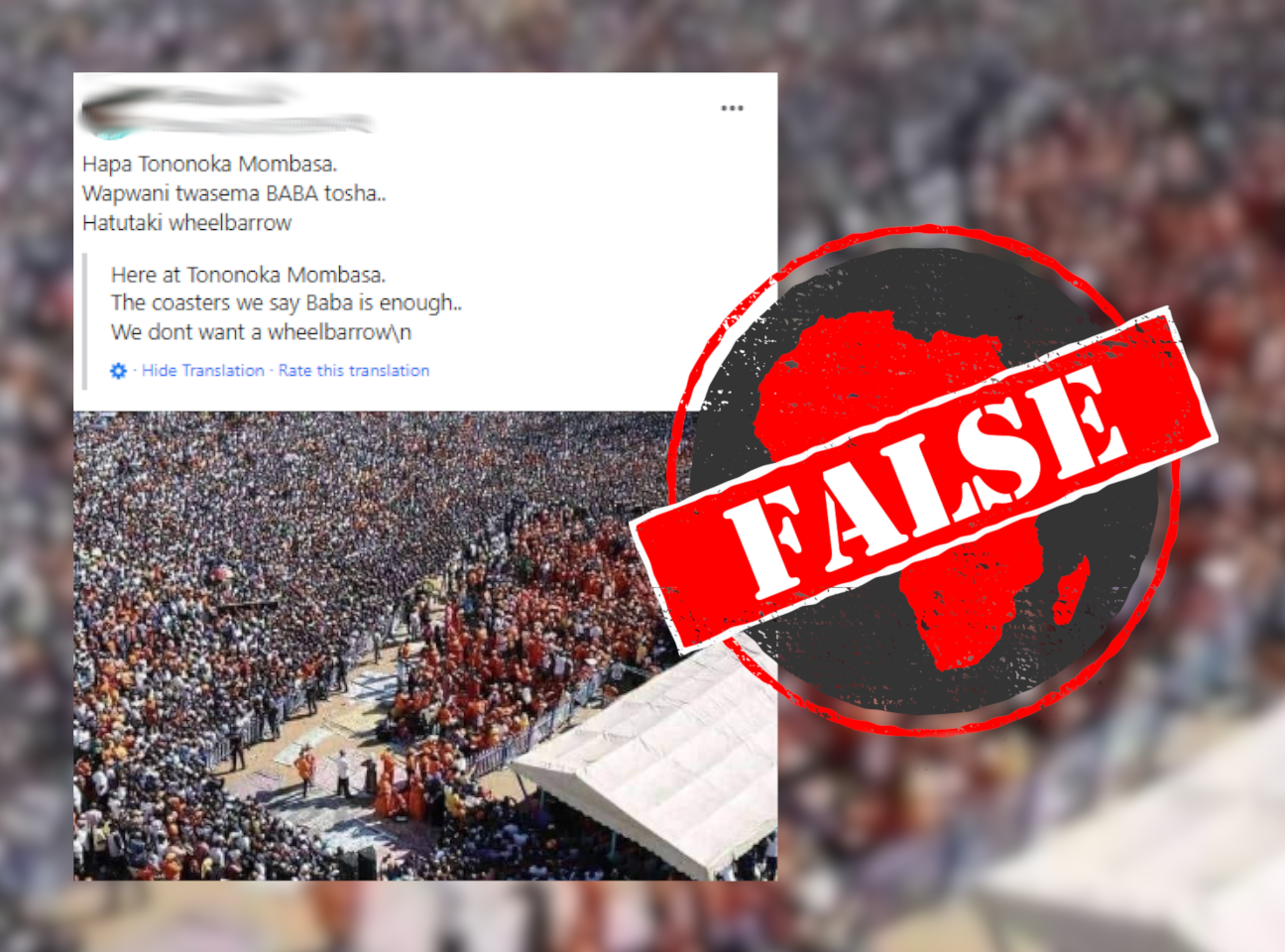On 20 February 2022, Kenya’s opposition Orange Democratic Movement leader Raila Odinga held a rally at Tononoka grounds in the southeastern coastal city of Mombasa. He is running for president in the August general elections.
On the day, a photo of a huge crowd started circulating on Facebook with the claim that it showed the rally.
“Hapa Tononoka Mombasa. Wapwani twasema BABA tosha. Hatutaki wheelbarrow,” one caption reads in Kiswahili, on a Facebook group with more than 255,000 members.
This translates as: “This is Tononoka Mombasa. We, the coastal people, endorse Raila’s presidency. We do not want wheelbarrows.”
The wheelbarrow is the symbol of the United Democratic Alliance led by deputy president William Ruto. He is also running for president.
But does the photo show Odinga’s rally on 20 February?

Photo from Kenya’s previous election season
A reverse image search reveals that while the photo does show an Odinga rally at Tononoka grounds, it is five years old.
It was published in an article on the Tuko.co.ke news website on 26 March 2017. Kenya’s previous and disputed elections were held that year – twice.
The photo does not show the February 2022 rally in Mombasa.
Republish our content for free
For publishers: what to do if your post is rated false
A fact-checker has rated your Facebook or Instagram post as “false”, “altered”, “partly false” or “missing context”. This could have serious consequences. What do you do?
Click on our guide for the steps you should follow.
Publishers guideAfrica Check teams up with Facebook
Africa Check is a partner in Meta's third-party fact-checking programme to help stop the spread of false information on social media.
The content we rate as “false” will be downgraded on Facebook and Instagram. This means fewer people will see it.
You can also help identify false information on Facebook. This guide explains how.


Add new comment